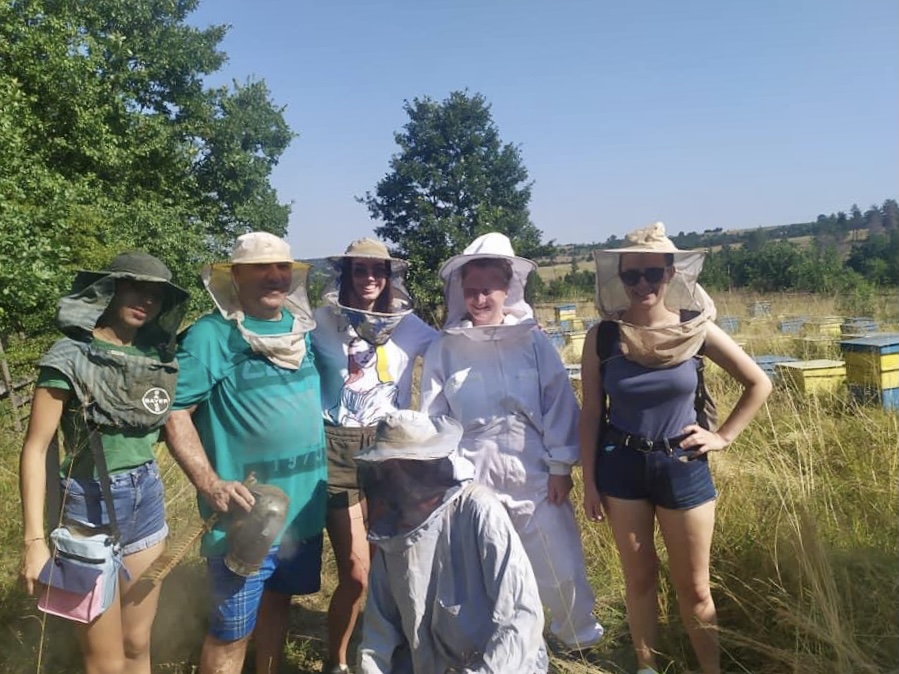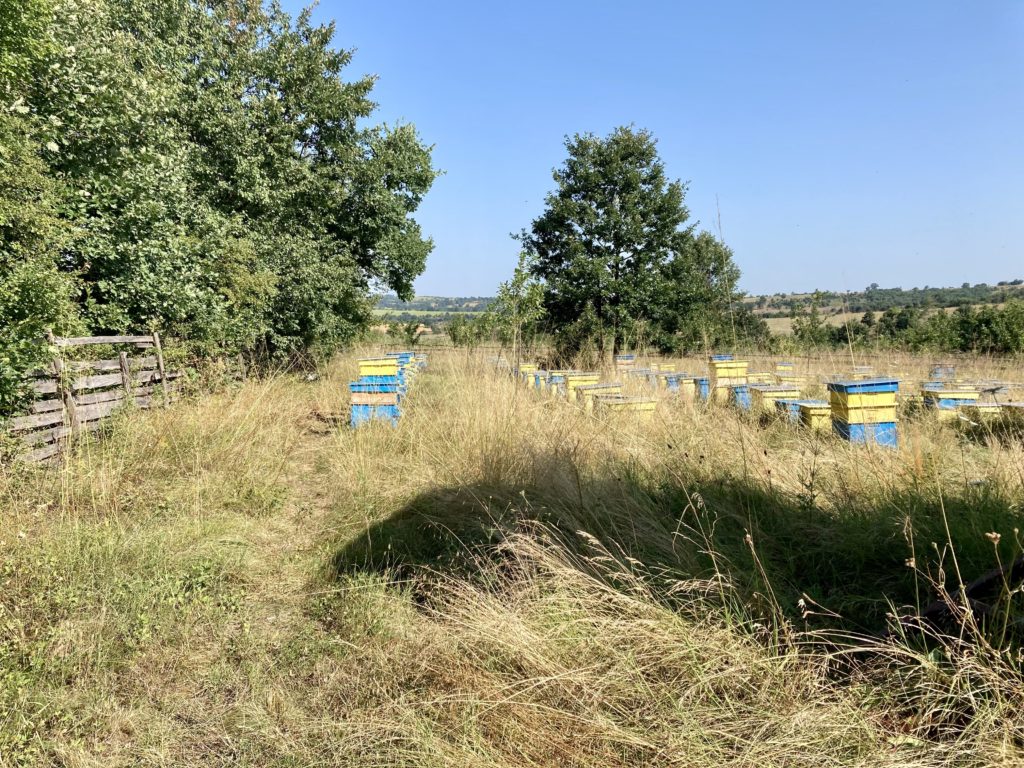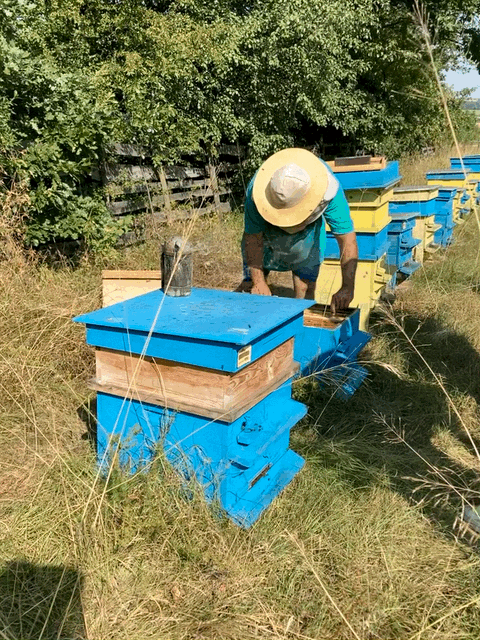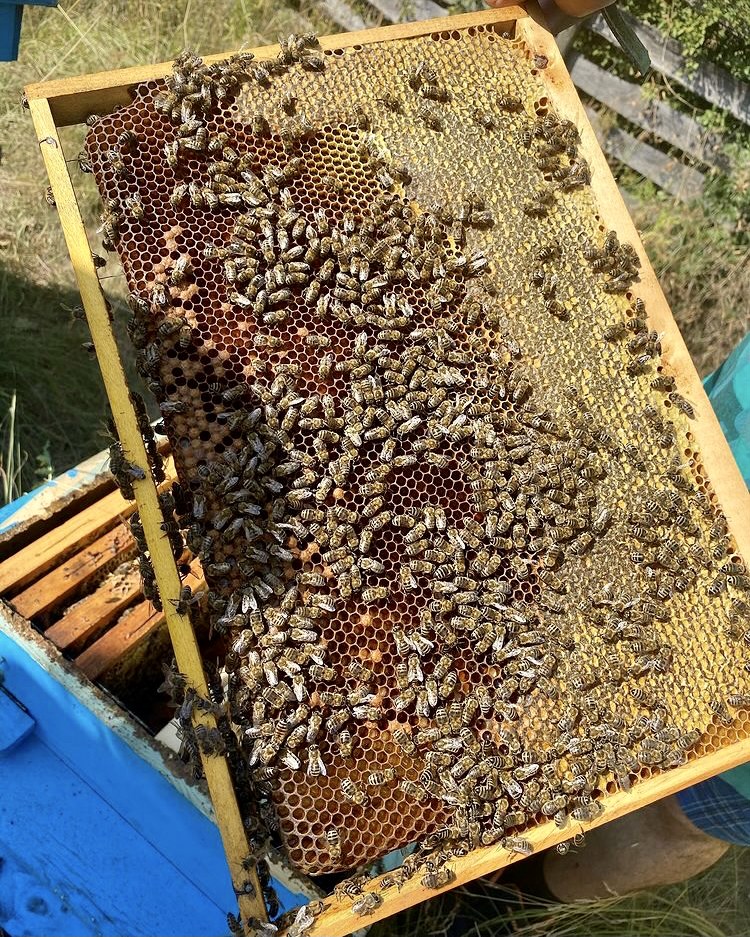Sweet, Sweet Bulgaria: Bulgarian Honey Production explained
As a daughter of two agricultural science engineers, I thought I knew everything there is to
know about agriculture and farming production. However, I was humbled to discover the Bio
Farm in Aglen owned by Atanas Atanasov. As part of the 2021 edition of the Eco Festival, he
shared with us his beekeeping activities. As he transmitted his knowledge on a part of
agriculture I knew very little about, in turn, I want to share what he taught us.
Why is Bulgarian honey special?
The power of Bulgarian honey lies in the diversity of nature, the precious plants rich in
virtues such as acacia, lime, thyme, lavender, savory. Natural beekeeping, which is
increasingly certified organic, is growing. According to the number of certified organic bee
families, Bulgaria ranks first among honey producers in Europe. A prerequisite for this is the
clean nature and many protected areas. The sector is characterized by the very large number
of small enterprises, while the number of independent beekeepers, owning more than 150
colonies of bees, is relatively small – 336 in 2009. It is because it is harvested on small private
farms in quiet forests and mountainous areas far from industries that Bulgarian honey is of
high quality. It is a pity that due to its lack of popularity, it is often used in honey blends to
improve the taste of the final product. In the last decade, honey has emerged as an emblematic
product for Bulgaria, present in all international exhibitions alongside Bulgarian yogurt,
damas rose oil and wine. More and more young people are adopting the ancestral profession
of beekeeper in order to valorize the Bulgarian honey. Thus, the honey available for export is
increasing because the country’s population is too small and therefore domestic consumption
is low. In 2010, there were about 560 000 bee colonies and the quantity of honey produced
was 9 529 tons. In the same year, Bulgaria managed to export the largest amount of honey
ever recorded: about 7,200 – 7,700 tons, which is about 70% of all the honey produced.
Why do bees make honey?
Honeybees are special in that the colony does not hibernate but stays active and clusters
together to stay warm. This requires a lot of food, which is stored during the summer.
Although a hive only needs 20-30lb of honey to survive an average winter, the bees are
capable of collecting much more, if given storage space. This is what the beekeeper wants
them to do. One hive can produce 60 lb (27 kg) or more in a good season, however an average
hive would be around 25 lb (11 kg).
How do bees make honey?
Bees take nectar, which is a sweet sticky substance exuded by most flowers and some insects
(honeydew) and mix it with enzymes from glands in their mouths. This nectar/enzyme mix is
stored in hexagonal wax honeycomb until the water content has been reduced to around 17%.
When this level is reached, the cell is capped over with a thin layer of wax to seal it until the
bees need it. This capping indicates to the beekeeper that the honey can be harvested. Capped
honey can keep almost indefinitely. Perfectly edible honeycomb was found in the tombs of
the Pharaohs, over three thousand years old.
How does the beekeeper get the honey from the bees?
The queen bee is kept below the upper boxes in the hive by a wire or plastic grid which the
queen is too large to fit through. As the bees cannot raise brood above the queen excluder,
only honey is stored in the upper boxes. As the season progresses the beekeeper adds more
upper boxes until the time to harvest the honey. A special one-way valve is then fitted in place
of the grid and gradually all the bees are forced into the lowest part of the hive. The beekeeper
can then simply lift off the upper boxes containing the honeycomb. The honey is extracted
from the comb using centrifugal force in a machine called a spinner, which looks like an old-
fashioned upright spin dryer.
What are the honey properties?
Raw honey is naturally antibacterial, anti-fungal, antiviral & antimicrobial. These properties
improve the immune system and enhance overall wellness. Powerful anti-oxidative and anti-
inflammatory properties make honey a great remedy for wound repair, burns, sore throat,
coughing, and asthma. In addition to this, natural honey contains small amounts of pollen
which helps to ward off and even eliminate allergies all together. It nourishes the body with
over 250 substances including B vitamins, minerals, essential fatty acids & amino acids…
allowing the one who consumes it to say goodbye seasonal allergies.
Why is saving the bees so important?
Believe it or not, we have a bee to thank for every one in three bites of food we eat.
Honeybees (wild and domestic) perform about 80 percent of all pollination worldwide. A
single bee colony can pollinate 300 million flowers each day. Seventy out of the top 100
human food crops (which supply about 90 percent of the world’s nutrition) are pollinated by
bees.
However, bee colonies are in decline and this worldwide collapse is not as big a mystery as
the chemical industry claims. Scientists know that bees are dying from a variety of factors
such as pesticides, drought, habitat destruction, nutrition deficit, air pollution, and global
warming. Many of these causes are interrelated. The bottom line is that humans are largely
responsible for the two most prominent causes: pesticides and habitat loss. The chemical
companies Bayer, Syngenta, BASF, Dow, DuPont, and Monsanto shrug their shoulders at the
systemic complexity as if the mystery were too complicated. They advocate no change in
pesticide policy. After all, selling poisons to the world’s farmers is profitable. Furthermore,
wild bee habitat shrinks every year as industrial agribusiness converts grasslands and forests
into mono-culture farms, which are then contaminated with pesticides. To reverse the world
bee decline, the dysfunctional agricultural system needs to be fixed.
Ecological farming is the new policy trend that will stabilize human food production, preserve
wild habitats, and protect the bees. Ecological, organic farming is nothing new. It is the way
most farming has been done throughout human history. It resists insect damage by avoiding
large monocrops and preserving ecosystem diversity. It also restores soil nutrients with
natural composting systems, avoids soil loss from wind and water erosion, and avoids
pesticides and chemical fertilizers. By restoring bee populations and healthier bees, ecological
agriculture improves pollination, which in turn improves crop yields.
Why should we support local beekeepers and organizations?
Local beekeepers work hard to nurture their bees and the local community. The easiest way to
show your appreciation is to buy locally-made honey and beeswax products. Many
beekeepers use products from their hives to create soaps, lotions, and beeswax candles.
Lucile Casamajor




